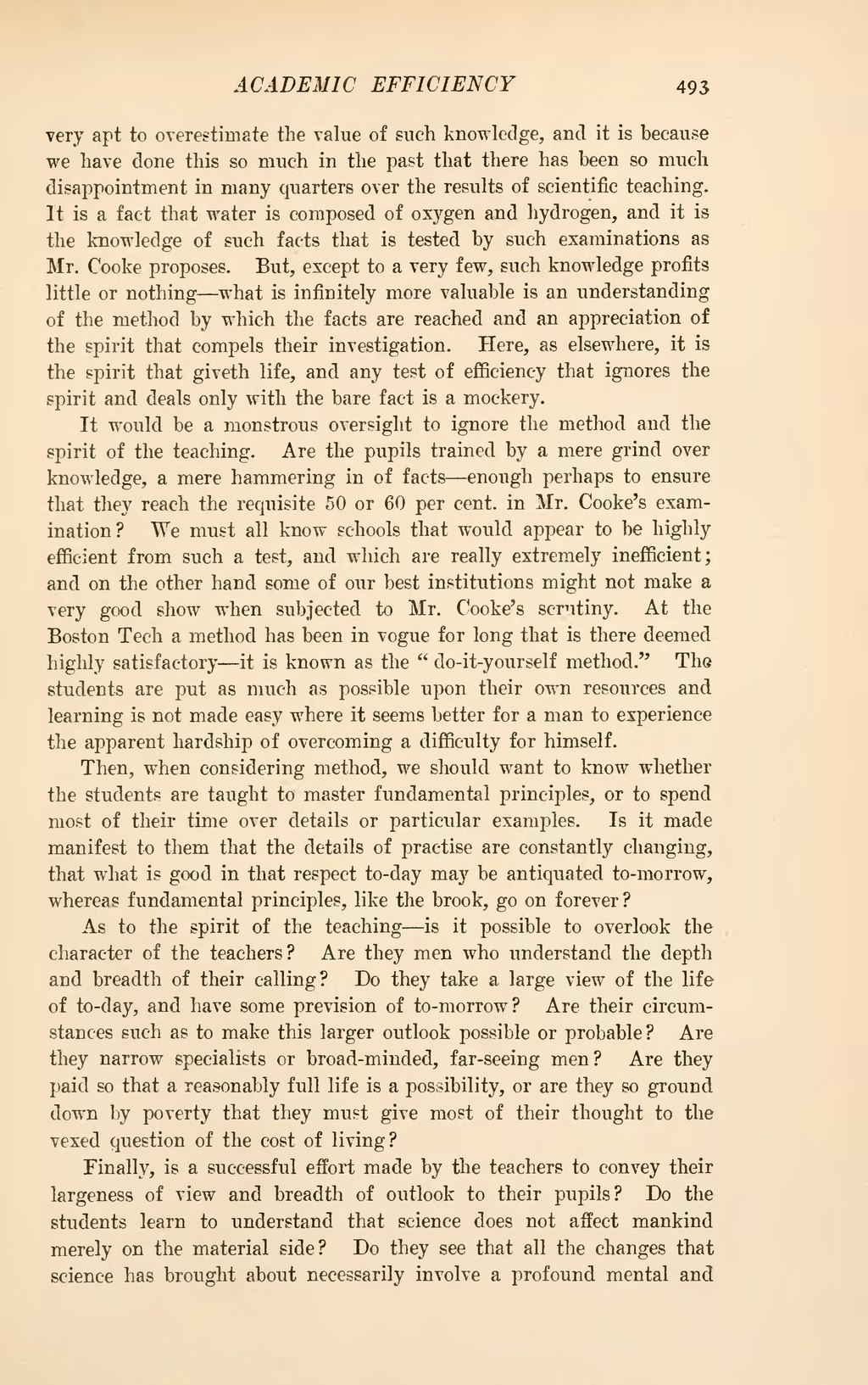very apt to overestimate the value of such knowledge, and it is because we have done this so much in the past that there has been so much disappointment in many quarters over the results of scientific teaching. It is a fact that water is composed of oxygen and hydrogen, and it is the knowledge of such facts that is tested by such examinations as Mr. Cooke proposes. But, except to a very few, such knowledge profits little or nothing—what is infinitely more valuable is an understanding of the method by which the facts are reached and an appreciation of the spirit that compels their investigation. Here, as elsewhere, it is the spirit that giveth life, and any test of efficiency that ignores the spirit and deals only with the bare fact is a mockery.
It would be a monstrous oversight to ignore the method and the spirit of the teaching. Are the pupils trained by a mere grind over knowledge, a mere hammering in of facts—enough perhaps to ensure that they reach the requisite 50 or 60 per cent, in Mr. Cooke's examination? We must all know schools that would appear to be highly efficient from such a test, and which are really extremely inefficient; and on the other hand some of our best institutions might not make a very good show when subjected to Mr. Cooke's scrutiny. At the Boston Tech a method has been in vogue for long that is there deemed highly satisfactory—it is known as the "do-it-yourself method." Tho students are put as much as possible upon their own resources and learning is not made easy where it seems better for a man to experience the apparent hardship of overcoming a difficulty for himself.
Then, when considering method, we should want to know whether the students are taught to master fundamental principles, or to spend most of their time over details or particular examples. Is it made manifest to them that the details of practise are constantly changing, that what is good in that respect to-day may be antiquated to-morrow, whereas fundamental principles, like the brook, go on forever?
As to the spirit of the teaching—is it possible to overlook the character of the teachers? Are they men who understand the depth and breadth of their calling? Do they take a large view of the life of to-day, and have some prevision of to-morrow? Are their circumstances such as to make this larger outlook possible or probable? Are they narrow specialists or broad-minded, far-seeing men? Are they paid so that a reasonably full life is a possibility, or are they so ground down by poverty that they must give most of their thought to the vexed question of the cost of living?
Finally, is a successful effort made by the teachers to convey their largeness of view and breadth of outlook to their pupils? Do the students learn to understand that science does not affect mankind merely on the material side? Do they see that all the changes that science has brought about necessarily involve a profound mental and

